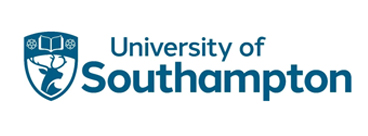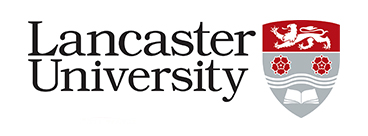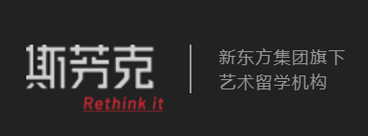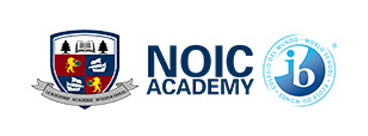1. Claire's Essay
In my vision I focus on a lone front tooth backdropped by a black abyss; thin lips dance around it in motions forming words, yet I can’t seem to hear them.
In the kitchen behind my grandfather sits his definition of luxury — a now stale and cold Filet-o-Fish from the Beijing McDonald’s. American basketball plays on the television across from where we’re sitting on the sofa; players’ shoes squeak and balls bounce louder in my ears than those words. In this moment, his Mandarin goes in one ear and out the other. I don’t listen the way I do when he’s screaming at my mother, a bitter, blind rage fueled by undercurrents of fear and “I miss you.”
My focus blurs, and the tooth disappears. Basketball fades to silence, and I’m on the airplane home to America. We’re separated once more by an ocean and three thousand unspoken miles. It’s a whirlwind; five years pass, and my few apathetic summers in China are over before I can blink twice.
The last clear memory I have is waking up on my thirteenth birthday to my dad handing me the landline kept for international phone calls: “Waigong has something he wants to read to you.”
It is a poem that he had written about me. Through the phone, I could do nothing but hear his voice, static worsening the Mandarin already slurred by missing teeth. The poem says everything he loved about his granddaughter, everything he saw in her, despite barely knowing her. It is a reflection of last dreams, visions, and hopes of his own.
He was gone not long after that, once more turned to forever.
It wasn’t until I found myself chancely entrenched in poetry because of a mandatory school competition that I began to think deeply about this disconnected relationship. Poetry Out Loud’s anthology introduced me to hundreds and hundreds of poems, and I felt like a hungry child at a buffet. When I discovered “Old Men Playing Basketball” by B.H. Fairchild, I saw tired arms and shaky hands as a pure geometry of curves, hobbling slippers as the adamant remains of that old soft shoe of desire. In words, I was safe to miss my grandfather for all the things that made him human. For the first time in my life, I began to realize that I might have a love for beautiful words that ran deep in my blood, a love that couldn’t be lost in translation.
On that makeshift podium in the school cafeteria my sophomore year, “Old Men Playing Basketball” becomes “Waigong Playing Basketball.” I’m taken back to that sofa in Beijing one more time, where he takes my small hand into his tremoring one covered by gray-brown patches of melasma, where he tells me, “You are a gift, a wonder. You are a hu die.” Butterfly: my Chinese name. Born to one day fly.
But it is no longer his voice I hear. It is my own— crisp and clear, raw and strong. The poem becomes the glass wand of autumn light breaking over the backboard, where boys rise up in old men. I see the whole scene this time, not just tooth and abyss. I hear every word.
Perhaps I will never be able to know my grandfather beyond his love of basketball and poetry, or hear his voice read me another poem. But when I am stirred by beautiful lines or liberated by my pen on paper, I know I am one of two same hearts, forever bound together by the permanence and power of language.
I am a vessel in flight, listening, writing, speaking to remember histories, to feel emotion, to carry forth dreams and visions and hopes of my own. My grandfather becomes an elegant mirage of a basketball player, carried by a quiet grace along my trail of spoken words floating upwards toward heaven.
点评:
从遗憾到诗意:一位哈佛新生如何用语言重建与外公的连接
📝 原文背景简介:
在这篇动人的文书中,Claire 以“语言”为主线,通过童年对外公的模糊记忆和成年后在诗歌中重新唤起的亲情纽带,展现了她从“听不懂”到“说出自己的声音”的心路成长。文章不仅描绘了她中美文化身份的拉扯,也通过对诗歌的体悟,构建起她与家族记忆之间跨时空的共鸣。
🎓 顾问点评:文字的回响,情感的穿透力
1️⃣ 主题稳准狠:语言的失语与回归
这篇文书最打动招生官的,不是华丽辞藻,而是“真实的遗憾”与“真诚的修复”。一开始,作者不是直接讲自己有多热爱诗歌,而是坦率地承认——她“听不懂”,她“没有投入”,她与外公的对话仿佛“背景噪音”。这种坦白的“失联感”恰恰是叙事的伏笔,反而让后文的情感爆发更具力量。
2️⃣ 巧妙设喻与结构递进:从“牙齿”到“蝴蝶”
文章以一个“前牙”和“黑洞”开篇,极具视觉张力,却迅速转换为冷漠、距离与悔恨的象征。而随着故事推进,诗歌成为联结祖孙的“共通语言”,外公口中的“蝴蝶”也成为 Claire 最后的身份隐喻:她不再只是那个无法回应的孙女,而是学会飞翔、会用语言承载记忆的“我”。
3️⃣ 叙事技巧成熟但不造作
不同于一些作文技巧痕迹过重的申请文书,Claire 的写作既有诗意表达(如“我是一只在飞行中的容器”),也有具体细节(外公的“melasma”、口中的“Filet-o-Fish”)。她没有刻意拔高文学性,而是让情感自然流淌,展现了叙事控制力。
4️⃣ 哈佛想看到的能力:反思 + 重构 + 表达
这篇文书并不止步于“我爱诗歌”这样的结论,而是体现了 Claire 用语言重塑自我身份的过程。她既能承认文化错位带来的痛,也能通过写作化解隔阂。这种将个人经历转化为表达力量的能力,正是哈佛这类文理兼优型大学最欣赏的“写作者型申请者”。
✅ 顾问建议:借鉴要点
若你是申请者,想从这篇文书中获得灵感,建议关注以下三个关键点:
| 元素 | 解读 | 启发 |
|---|---|---|
| “不完美开场” | 以失联、冷漠、遗憾开场,真实且引人入胜 | 不必一上来就展示“闪光点”,可以从“裂缝”讲起 |
| 人物塑造 | 外公形象虽寥寥几笔,但立体鲜活 | 描述亲人时,尽量用细节+动作+语言来立体呈现 |
| 自我成长过程 | 从拒绝沟通 → 被诗歌打动 → 学会倾听与表达 | 一定要有内在转折,“我变了”需要被清晰展现 |
✍️ 总结一句话:
这篇文书不是讲Claire“多强”,而是在讲她“怎么成为了今天的自己”。
而这,恰恰是名校文书的灵魂所在。
















